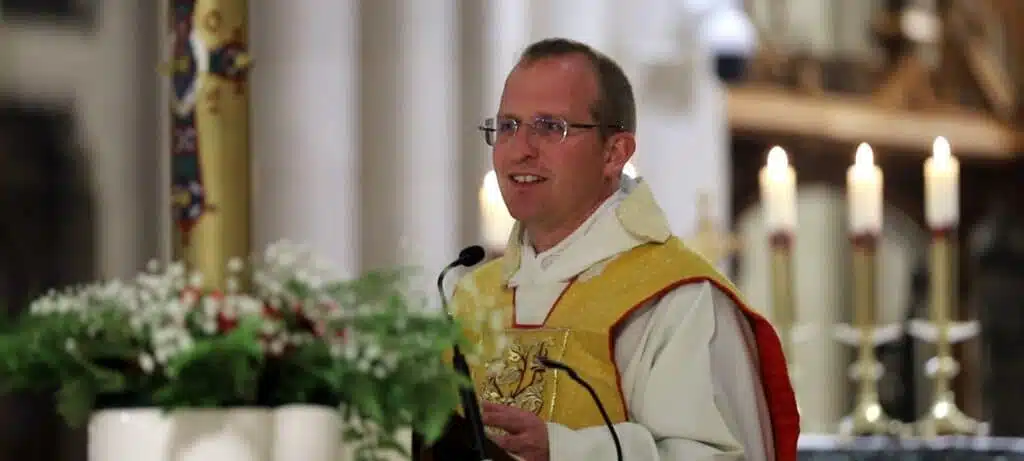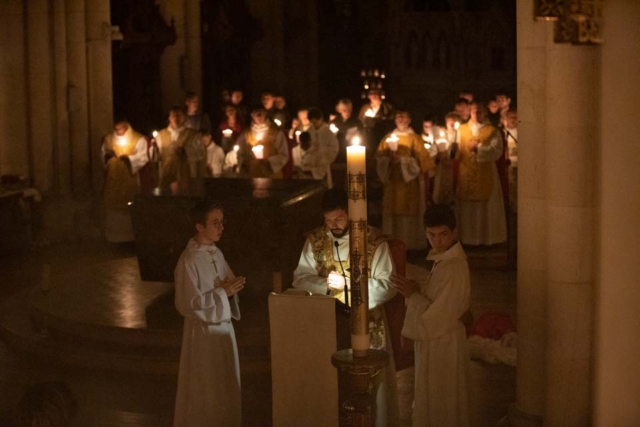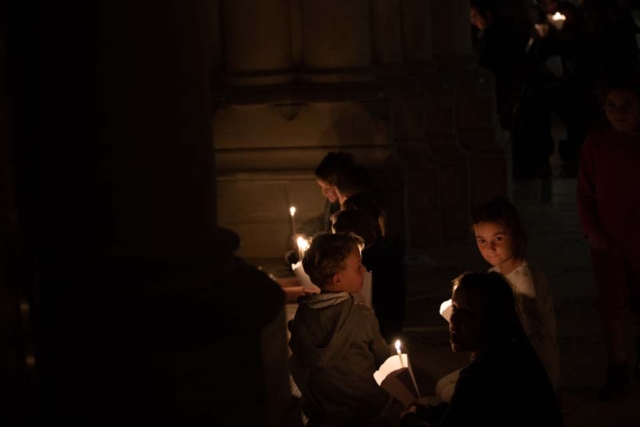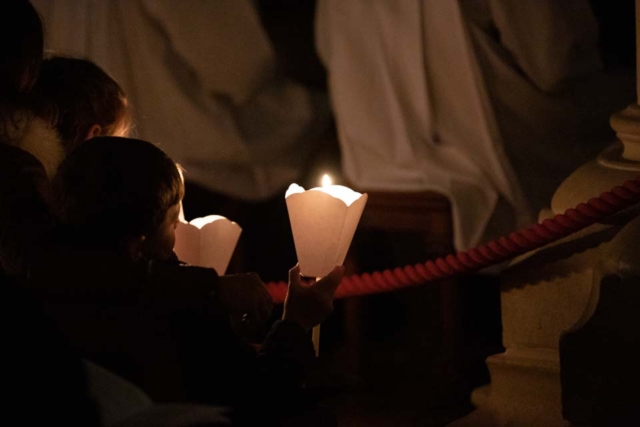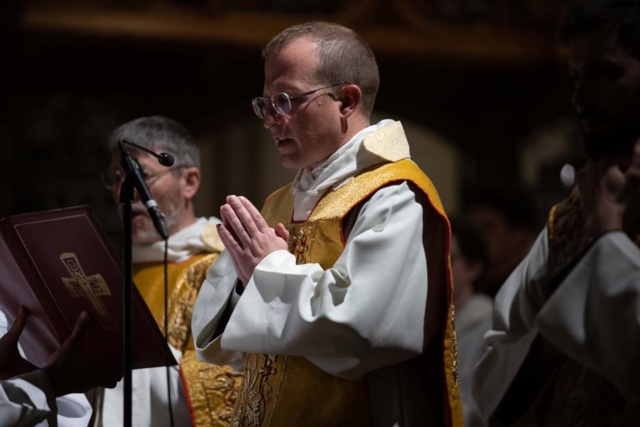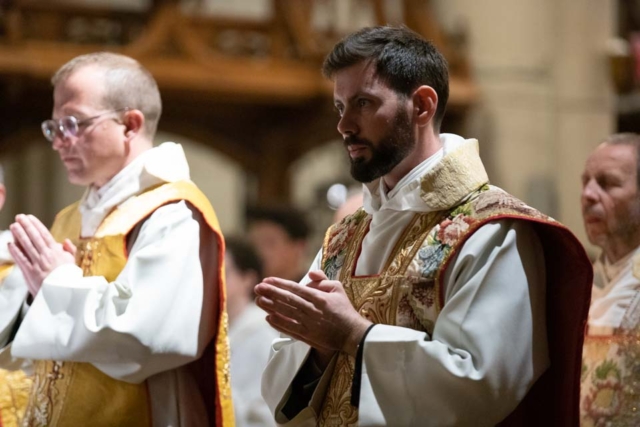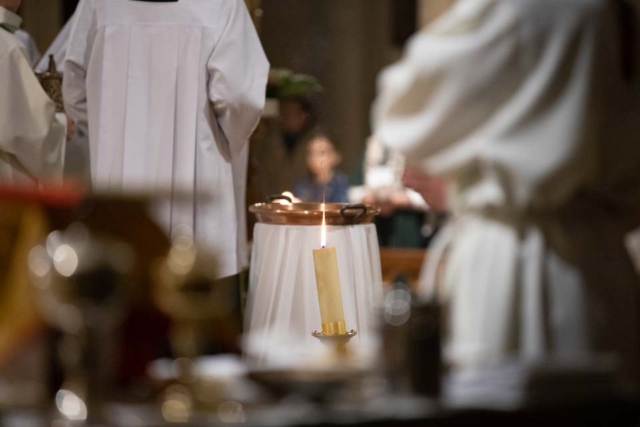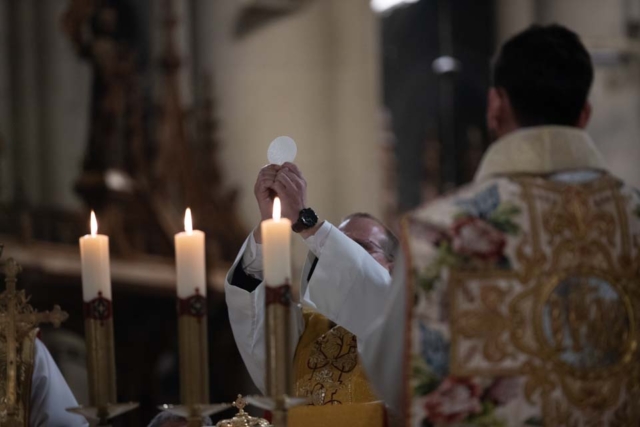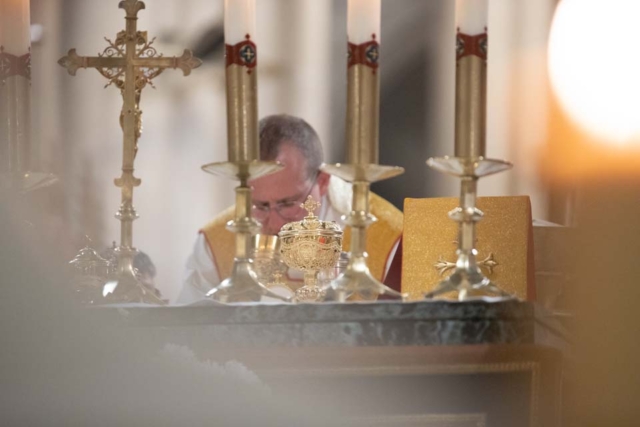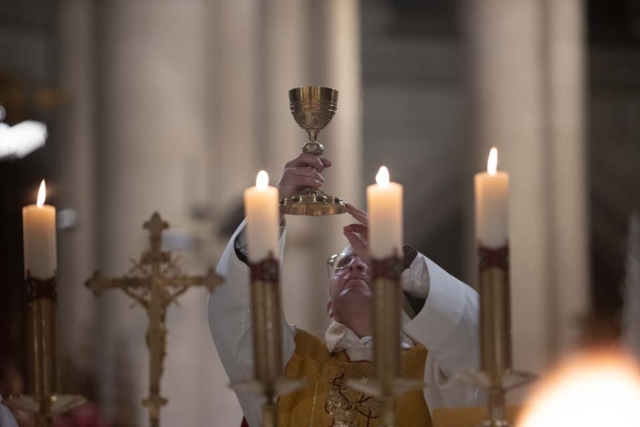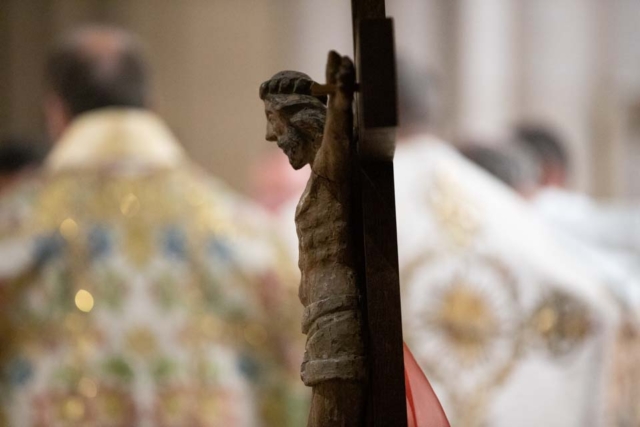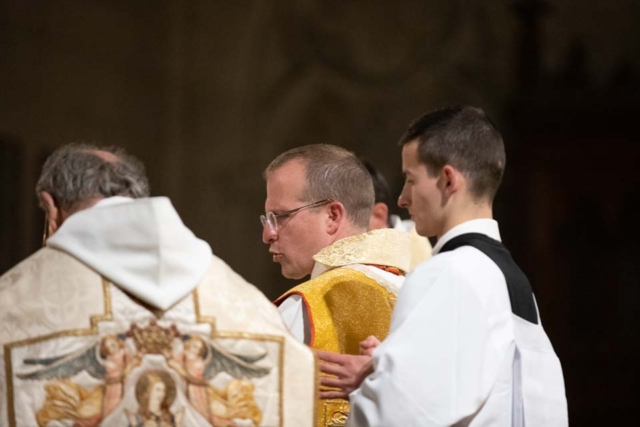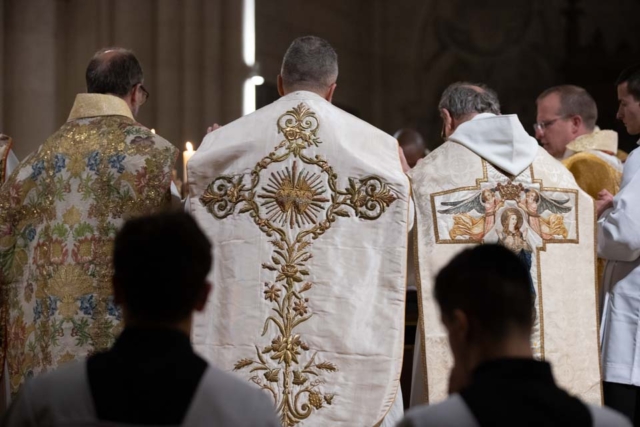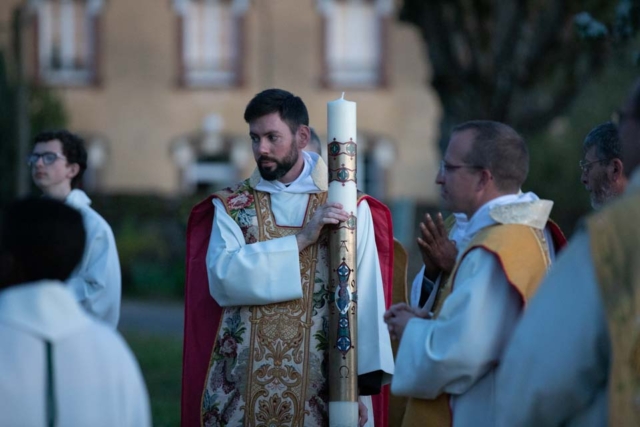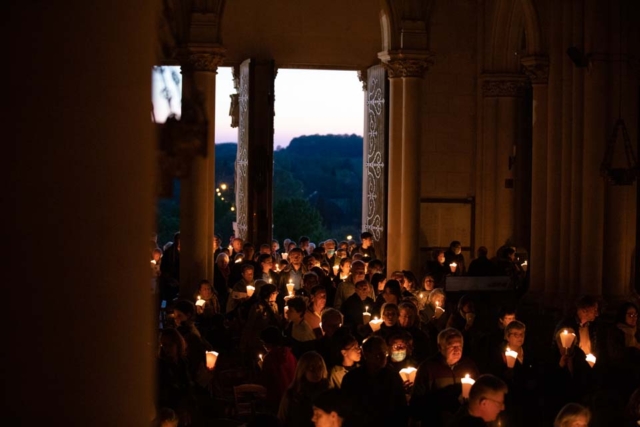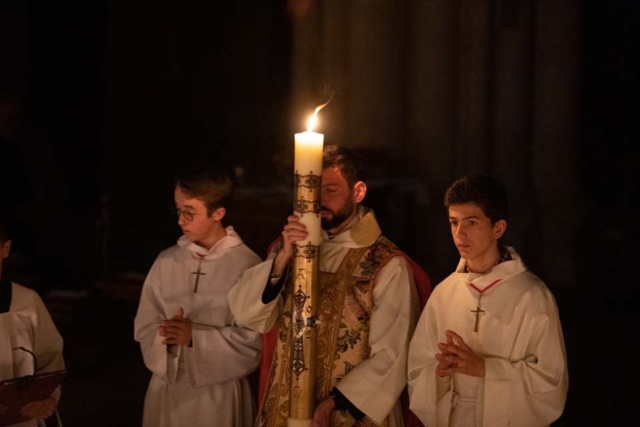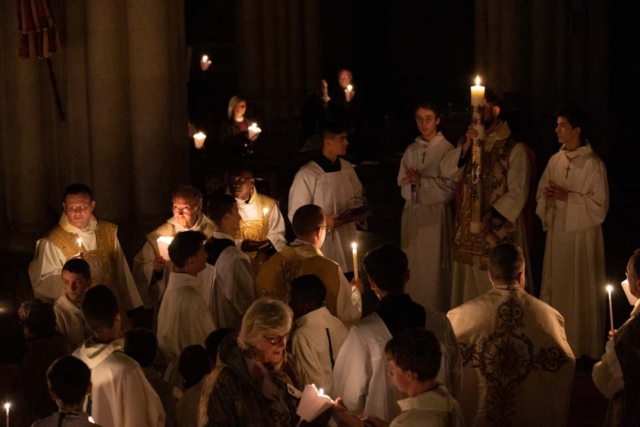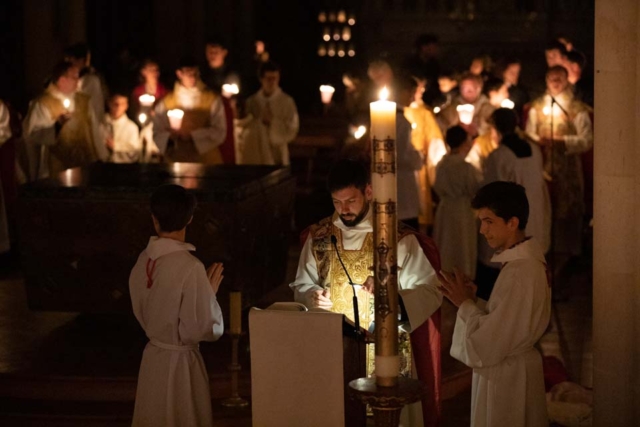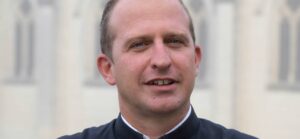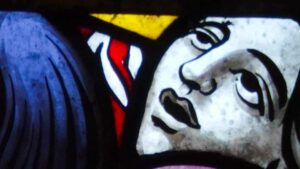by Rev. Fr. Paul Denizot, on Saturday 16th April 2022
A German theologian said one day that the eventual miracle of a corpse brought back to life, would ultimately not matter since it would not impact our lives in the slightest. Lastly, we would not be concerned.
This standpoint shared by Pope Benedict XVI is most interesting. Does it not reveal one of our temptations, as we celebrate the Resurrection of Christ, tonight?
Is it not a temptation to consider the Resurrection as a forfeited event? Indeed to believe that Christ rose but that His Resurrection belongs to the past?
I recall the holy women who went to the tomb in the early hours of that Easter morning.
Jesus’ Passion and ignominious death had unsettled their hearts, as women, mothers, and disciples.
Such a tragic failure. Dreadful… “But we had hoped that he was the one who was going to redeem Israel” as were to comment the disciples on the road to Emmaus. The pledge of the Kingdom was not fulfilled.
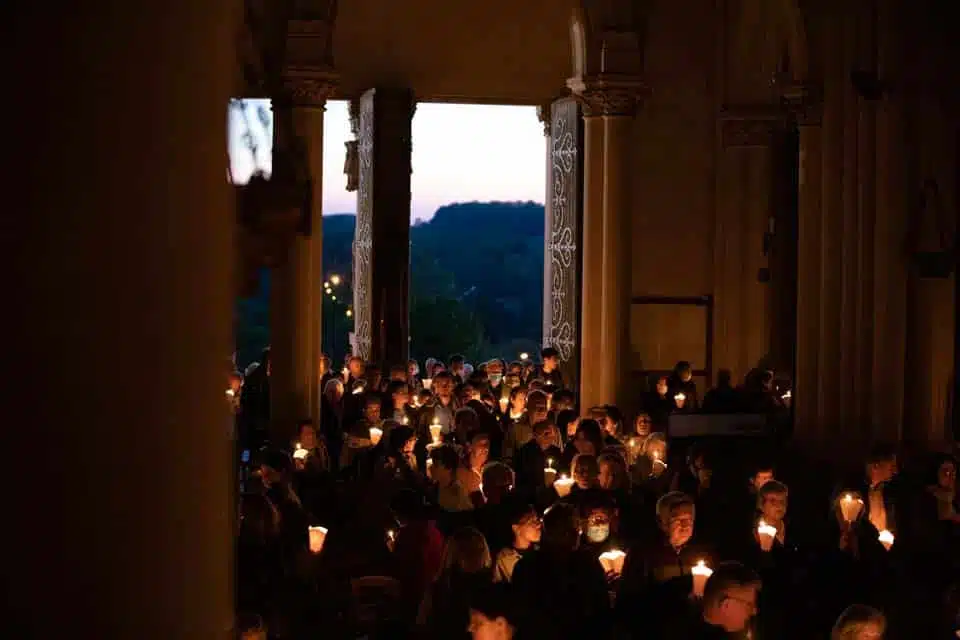
The holy women (Maria Magdalena, Jean, Mary mother of James, and the others…) expressed tremendous love, a love that engaged them to come to the tomb at the crack of dawn, as soon as the Shabbat ended, in order to gaze one last time upon the injured face, and to touch, care for and embalm the cold corpse of that man they had loved so (….).
An ultimate, critical and yet insignificant consolation prior to being deprived of the beloved face forevermore.
Jesus already seems to belong to the past and they come to the tomb as if to uphold one last memory, one last time.
Thus, with such stance, we too might celebrate Easter as a commemoration, of an historic event that still partakes in our Christian identity, just like one might celebrate Bastille Day, or Mitterrand’s election as President of France in 1981, or the victory of the French national football team in 1998 at the world cup. Hence Jesus would merely be part of the past, period.
Another temptation would be to consider the realm of the Resurrection, that is the kingdom of God, as a parallel world. Jesus would have risen and been taken to another realm, removed from ours, from where He would await us whilst carrying out, ever so often, sporadic incursions into our lives (…).
How compelling the temptation to separate nature from supernatural, to separate this world created by God out of nothing, like the reading from the Book of Genesis reminds us, from the realm of grace (…) and to even oppose them. So much so that Resurrection would subsist beyond our lives (…)
How compelling the temptation to spiritualize things: indeed one can observe it at funerals as one refers far too rapidly to the deceased heaven-bound trip whilst standing in front of a dark and cold tomb, or when one urges a bereaved person not to be shedding tears since the beloved deceased is in heaven (…)
Thus, it would merely entail for people in distress to wait for time to go by, for this world to elapse, in order to finally reach the shore of eternal life and join their demised beloved ones. Yet, the reunion will still have to be postponed (…).
Moreover, we ultimately shall all relinquish the realities of this world: relationships, family bonds, friendships… For death will not spare us (…)
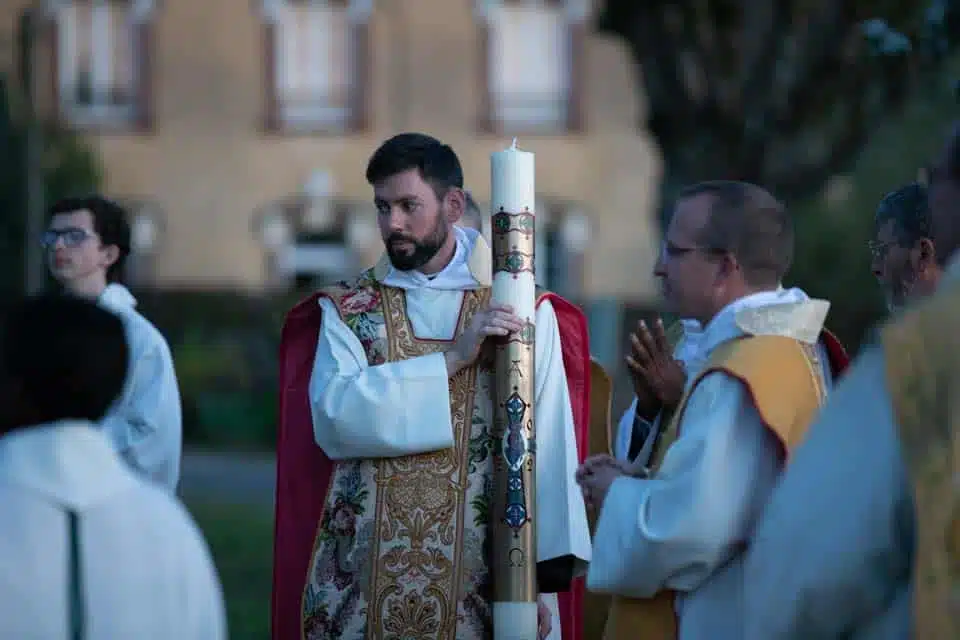
How tempting to seek to disconnect the life of God from the reality of our lives. Yet, the Resurrection of Christ is not that. Neither an event set aside in history, nor belonging to another dimension that would be radically estranged to our lives.
The Resurrection cannot be comprehended by mere intelligence, it is an unheard of event, a mystery of faith, the elusive Mystery of faith.
On their way to announce the resurrection to the disciples, did the holy women really understand the reality of what they proclaimed? What of Peter? The women imparted him with the resurrection that dwells at the core of Israel’s expectancy, they reminded Peter of the Master’s own words foretelling that: ” He will be handed over to the Gentiles and he will be mocked and insulted and spat upon; and … they will kill him, but on the third day he will rise.” Peter saw the empty tomb… Nevertheless, it is all too big and unbelievable an event. What do the women mean by: “Christ is risen from the dead”?
The Resurrection means that the most significant mutation took place, a momentous leap: a new dimension of life arose in death itself to wrest away all of creation, breaking into the world to transform it.
Christ is alive. Here He is, among us, with us, within ourselves, in attendance. Christ is alive and we trust that our beloved deceased are with Him today rather than in a “beyond” or parallel world.
Christ is alive and the might of His Resurrection, the vital light that sprung from the tomb (symbolized by the Paschal candle) illuminates us and affects us today still. It illumined us at our Christening, and today it continues to irradiate our lives, our world, as well as our deceased brothers and sisters.
Eternal Life, the life in God, His Love and His Light, has been made manifest in us.
Thus tonight we are to formally renew our Baptismal Vows, recalling that the light that sprang from the tomb, today still, comes to enlighten our lives despite trials.
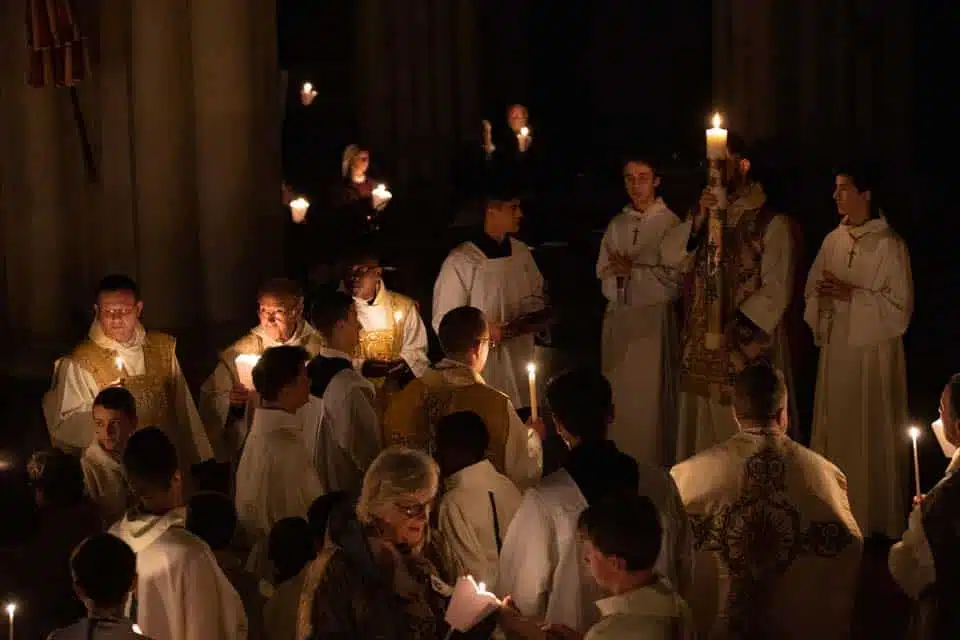
That Light is mighty. It cannot wane. It has been enlightening the world for over 2000 years; it unremittingly unfolds and no impediment will ever hold it back. Mightier than any occurrence, evil, idol or ideology that loiter over us: crises, wars, ecological collapse, technocratic paradigm or commercial selfishness that claims to liberate man by suppressing the most fragile human beings.
This light of the Resurrection is all mighty because it has sprung from the void of death. Thus nothing can stop it and that is our joy!
Amen.

